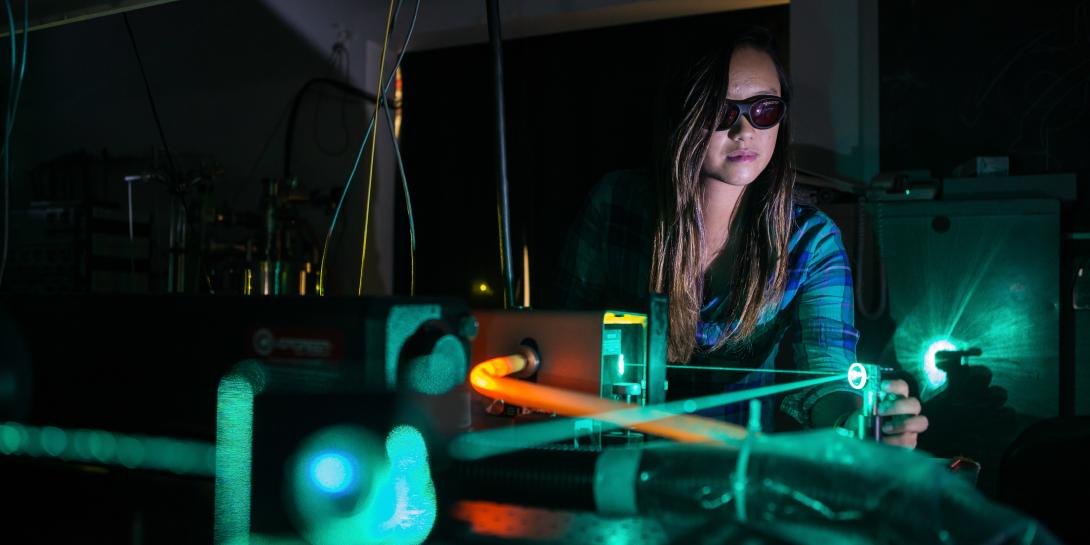Reveal the Universe
With highly advanced computational and experimental facilities at your disposal, there’s nothing to hold you back from embarking on a journey at the forefront of modern science. At Lehigh, you will engage in cutting-edge research, have access to state-of-the-art instrumentation and research facilities, and work closely with professors who are recognized internationally for their expertise.
Opportunities for specialization include:
- Astrophysics
- Atomic, molecular and optical physics
- Biophysics
- Complex fluids
- Computational physics
- Condensed matter physics
- High-energy theory and cosmology
- Photonics and Nonlinear optics
- Nuclear physics
- Statistical physics
The M.S. program offers a rigorous and comprehensive education designed to deepen your understanding of fundamental and advanced physics principles. It provides a solid foundation in both theoretical and experimental physics, fostering critical thinking skills and equipping you with the knowledge to excel in your chosen field.
Ph.D. candidates generally obtain their degree in 5 years of full-time study and research, with the possibility of adding a 6th year. During this period, students work closely with faculty and peers to carry out cutting-edge science, advance their field, contribute to scientific literature, and develop skills to tackle complex challenges.
Program Specific Admissions Requirements
- Submit a CAS graduate application with supporting materials
- The physics program requires a total of 3 letters of recommendation
- GRE scores are required
- Applications and all supporting materials are due by January 15 for fall enrollment
Ready for the Next Step?
Apply to the Physics graduate programs via the online graduate application.

